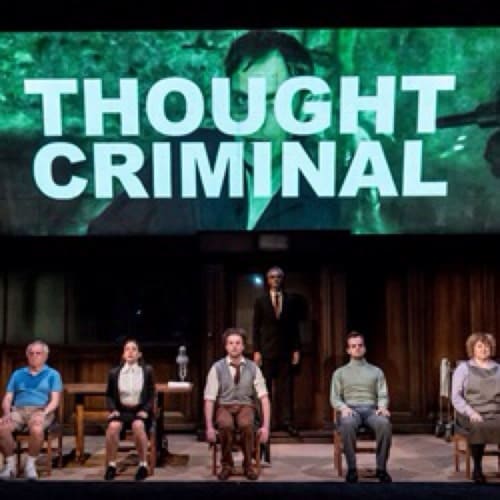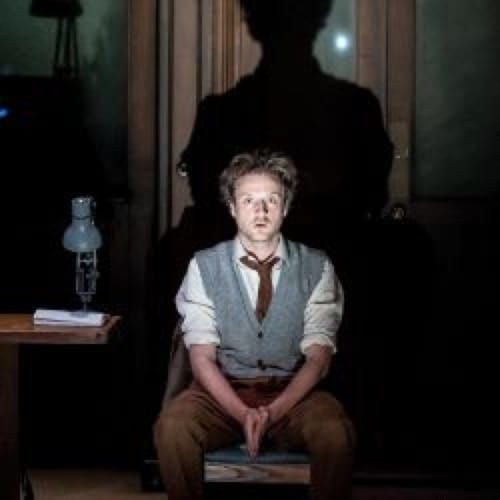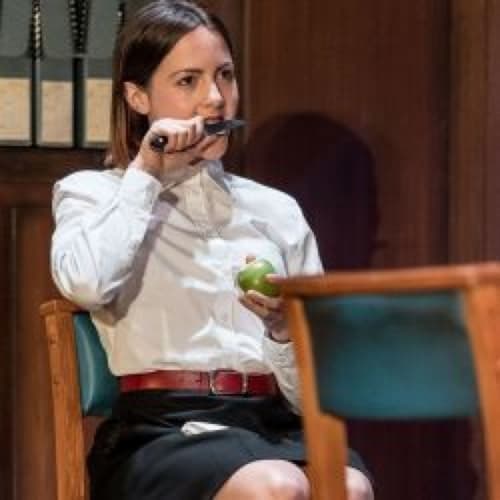One of many sudden jolting moments in Robert Icke's and Duncan Macmillan's stylish adaptation of 1984 takes place when a small girl, played on this occasion by Eve Benioff Salama, abruptly blows a shrill whistle and pointing an outstretched arm denounces someone for thought crime.
This we are told is, "the essential crime that contains all others in itself." Accusations might be followed by interrogation and execution.
How close they are touching on a nightmare of our own times was illustrated last December when a ten-year-old boy was interviewed by police because in a school essay, instead of writing as he intended that he lived in a terraced house, he wrote he lived in a terrorist house.
This was the government’s Prevent strategy in operation, searching out signs of radicalisation under which last year some fifteen hundred children were reported to the authorities and the UN recently commented that, “it is difficult to define the term 'non-violent extremist' without treading into the territory of policing thought and opinion."
Headlong’s sharp, atmospheric adaptation of Orwell’s satire on 1948 follows the sequence of the novel and incorporates recognisable portions of Orwell’s text in the dialogue, but makes it seem like a disturbing image of our near future.
The action takes place mostly in a wood-panelled room with a back wall of windows onto a corridor along which sinister figures walk.
The scenes are cinematic in their composition and are broken by sudden flashes of light and total darkness. At times, characters walk with a strange awkward slowness or freeze in some unsettling position.
The performance opens and closes with a future book club discussion. The group text on mobile 'phones and speak warmly about something written by Winston. Casually, they mention that the party and the system of Big Brother have long since fallen. It allows a less pessimistic vision than Orwell’s novel. However, a comment made towards the end of the play implies that such a vision may just be another illusion manufactured by the party.
Andrew Gower as Winston is angry enough to defy Big Brother, but often looks so fearfully bewildered we might wonder if he would forever postpone any protest. The catalyst for action is a meeting with Julia (Catrin Stewart) who, when she kisses him, says that with the kiss they "killed Big Brother."
However, Julia’s non-conformity takes the form of personal pleasures such as eating prohibited chocolate and having sex with whom she pleases. Winston, in a moment of impatience, tells her she is "only a rebel from the waist down." For him, it is the outrageous lies of the regime that need to be challenged.
The show only ever touches impressionistically the larger political and moral questions raised by the novel and its connection with the world we live in, but it does so in a dramatically unsettling manner and with a great deal of style.


